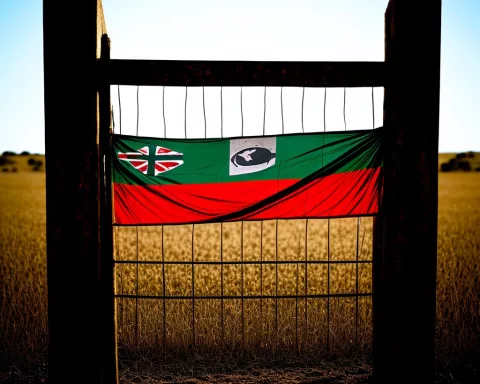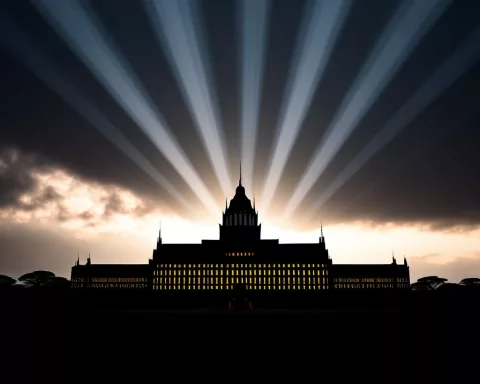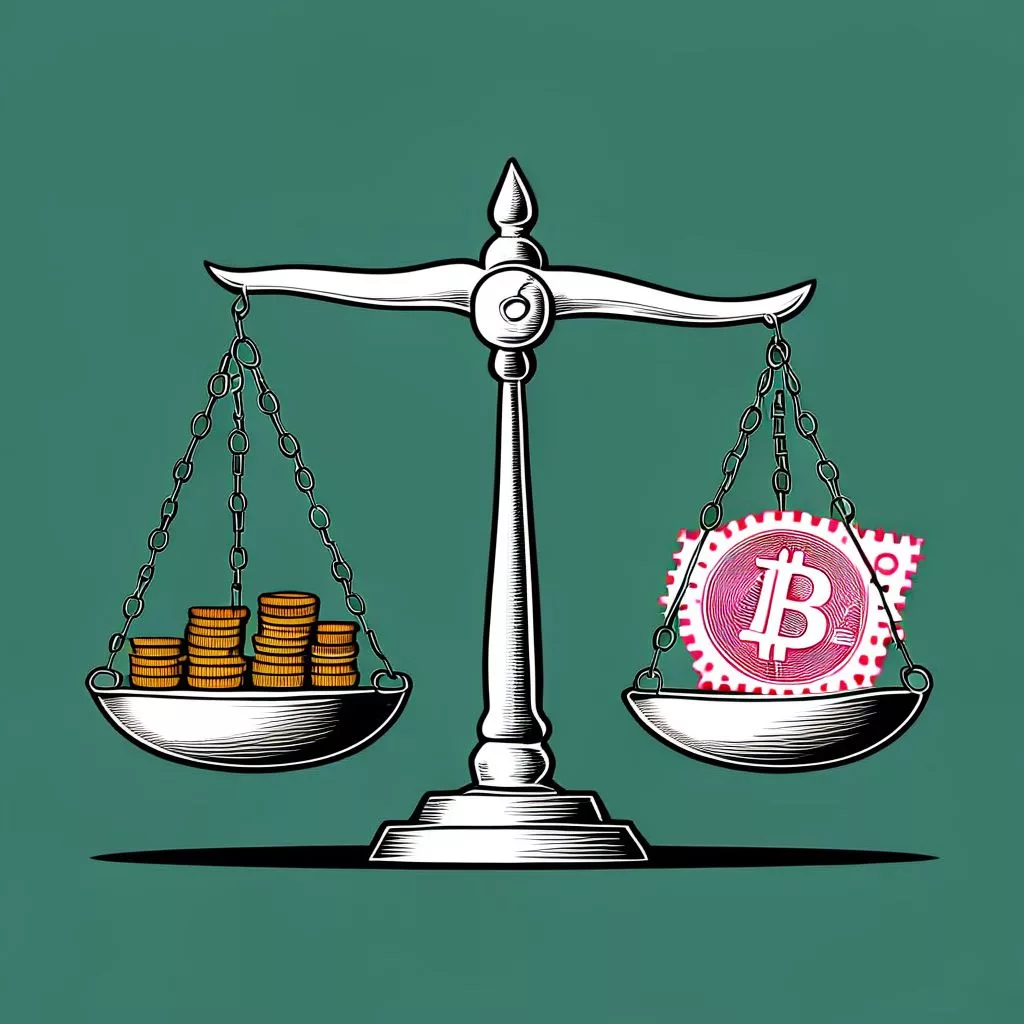South Africa’s two biggest political parties, the ANC and DA, are talking about working together in a Government of National Unity to tackle big problems like job loss and power shortages. These talks bring hope because they show leaders trying to put aside their differences for the country’s good, just like during the end of apartheid. People are watching closely, hoping this teamwork can fix the economy and rebuild trust. Though challenges remain, this effort could help South Africa grow stronger and inspire others across Africa.
What are the ANC and DA unity talks in South Africa about?
The ANC and DA are negotiating a Government of National Unity to address South Africa’s economic challenges, including unemployment and the electricity crisis. These talks aim to foster political cooperation, stabilize the economy, and restore public trust through ongoing dialogue and shared governance.
Setting the Stage for Political Cooperation
South Africa stands at a pivotal crossroads in its democratic journey. The African National Congress (ANC) and the Democratic Alliance (DA), the nation’s two most prominent political parties, have embarked on a series of high-stakes negotiations. Their aim: to lay the foundations for a Government of National Unity (GNU) that can address South Africa’s mounting economic and social challenges. With reports confirmed by both Cape {town} Etc and official party statements, these developments mark an important turning point, capturing the nation’s attention and stirring debate across social and political landscapes.
The image of John Steenhuisen, leader of the DA, stepping into confidential discussions with the ANC’s negotiation team harks back to earlier moments in South Africa’s history. The early 1990s saw leaders like Nelson Mandela and F.W. de Klerk forging an end to apartheid through intense dialogue and compromise. Today, new leaders once more face the call to transcend party boundaries for the greater good of the country, underlining the recurring need for unity in times of national trial.
Helen Zille, chairperson of the DA’s Federal Council, described these talks as direct and productive. Her remarks highlight a spirit of pragmatic hope—a willingness to confront uncomfortable truths in pursuit of genuine progress. Economic growth and fiscal responsibility dominated the agenda, reflecting the urgent need to stabilize and rebuild a nation still feeling the aftershocks of global upheavals, entrenched inequality, and widespread frustration with the pace of reform.
Economic Realities and the Weight of History
South Africa’s economic landscape paints a sobering picture. A once-booming economy now faces persistent headwinds: GDP contraction, widespread unemployment, and an ongoing electricity crisis that has come to symbolize deeper, structural problems. Inflation, stagnating growth, and a fragile currency have further shaken public trust. In this environment, the pursuit of a GNU is more than a tactical political move—it is a serious attempt to tackle economic stagnation and rebuild confidence in the country’s institutions.
The idea of a unity government carries deep roots in South Africa’s recent past. In 1994, the country’s first inclusive administration relied on cooperation between the ANC and various opposition parties, achieving both symbolic and practical gains in a volatile transition. The current negotiations, however, unfold under a unique set of pressures. Today’s leaders face not only the task of reconciliation, but also the urgent responsibility to stabilize the economy and restore belief in democracy’s capacity to deliver tangible benefits.
Zille’s call for a “sustainable plan” echoes global best practices in crisis recovery. She insisted that solutions should not merely address immediate crises, but also lay the groundwork for long-term resilience and prosperity. This philosophy aligns with international examples—be it Germany’s postwar economic rebuilding efforts or Scandinavia’s emphasis on social dialogue to foster economic stability. In each case, meaningful progress has depended on cooperation and sustained engagement among diverse actors.
Negotiation Dynamics and Political Implications
The atmosphere surrounding these negotiations blends formality with a deep sense of urgency. Inside sources describe moments of sharp disagreement, but also a shared recognition that the stakes extend far beyond party interests. This dynamic mirrors the realism found in classic Italian cinema—where decisions made in government chambers ripple outward, affecting the daily lives of millions.
Fikile Mbalula, Secretary General of the ANC, expressed the party’s commitment to ongoing discussion and genuine consultation. He reaffirmed the ANC’s dedication to its foundational values: social justice, equity, and transformation. Yet, the simple act of initiating talks with the DA signals a pragmatic openness to finding common ground, even across significant ideological divides. Mbalula highlighted the recent decision not to raise Value Added Tax (VAT) as proof of both parties’ sensitivity to public concerns and their willingness to adapt fiscal policy in real time.
Negotiations have adopted a rolling, continuous format rather than relying on a one-off summit. Both parties have agreed to frequent, structured meetings, establishing what Zille called a “platform for ongoing dialogue.” This iterative approach reflects traditions found in established parliamentary systems—where consensus develops through repeated engagement rather than abrupt, one-time deals. Such a process allows for deeper exploration of systemic issues and encourages more durable agreements.
Within society, anticipation mingles with skepticism. For some South Africans, the move toward a unity government revives the “rainbow nation” ideal—a vision of inclusive democracy still striving to be realized. For others, doubts linger: can dialogue really overcome entrenched problems, or does this represent a temporary alliance of convenience? However, the very act of sustained, good-faith negotiation is itself an affirmation of democratic values and the potential for renewal.
Broader Impact and the Path Forward
Observers across the country and abroad have taken note. The willingness of the ANC and DA to set aside rivalry in favor of collaboration sends a strong message to both investors and ordinary citizens: South Africa’s political culture is maturing, and leaders are prioritizing stability over division. At a time when polarization fractures democratic societies worldwide, South Africa’s approach offers a different model—one where dialogue and cooperation take center stage.
Unity governments and broad coalitions historically emerge in response to existential threats. South Africa’s current perils—economic stagnation, social fragmentation, and declining public trust—require more than simple power-sharing. The ongoing talks signal a collective effort not just to achieve a parliamentary majority, but to redefine the very character of the state. Many hope this will foster a “social compact” that binds citizens and policymakers together in pursuit of shared goals and renewed confidence.
Public sentiment captures both hope and the need for results. Many South Africans, from business owners in Johannesburg to community leaders across the provinces, voice a common refrain: “We’ve heard promises before; what matters now is meaningful change in everyday lives.” Negotiators face real pressure to deliver agreements that translate into improved public services, job opportunities, and a revived economy.
South Africa’s decisions will resonate beyond its own borders. As the continent’s most industrialized economy, it often sets trends for neighboring states. Should the unity government model succeed, capitals from Nairobi to Lagos could look to Pretoria for inspiration in managing political division and economic hardship. Cooperative governance, if it delivers, could help reshape expectations for democracy and stability across Africa.
Cultural voices add depth to the moment. South African writers, musicians, and artists have long explored themes of unity and diversity—highlighting the possibility of harmony amid complexity. The current political negotiations continue this tradition, bringing together competing interests in an effort to find shared purpose and renewed national identity.
As the negotiations proceed, the practical demands of governing will test both the ANC and DA. Fiscal constraints, policy disagreements, and the everyday mechanics of managing a coalition will require flexibility, creativity, and trust. History, however, suggests that moments of crisis can also unleash unexpected innovation. In the challenge of building unity, South Africa has another chance to reimagine what democracy and cooperation can achieve in the 21st century.
What are the ANC and DA unity talks in South Africa about?
The ANC (African National Congress) and DA (Democratic Alliance), South Africa’s two largest political parties, are negotiating to form a Government of National Unity (GNU). This collaboration aims to tackle pressing national challenges such as high unemployment, economic stagnation, and the ongoing electricity crisis. Through shared governance and political cooperation, the talks seek to stabilize the economy, restore public trust in institutions, and promote social cohesion.
Why is a Government of National Unity important for South Africa now?
South Africa faces multiple crises: persistent job losses, a contracting GDP, inflation, and widespread power shortages that impact daily life and economic activity. A unity government is seen as a way to transcend partisan divisions and foster a collective approach to solving these problems. This model has historical precedent in South Africa’s transition from apartheid in 1994, when inclusive governance helped stabilize the country during a volatile period. Today, the GNU could promote long-term resilience and renewed confidence in democracy.
How are the ANC and DA conducting these negotiations?
The parties have adopted a rolling, continuous negotiation process with frequent and structured meetings rather than a one-time summit. This ongoing dialogue platform allows for deeper exploration of systemic issues and builds consensus over time, reflecting practices common in mature parliamentary democracies. Despite occasional disagreements, both sides have expressed a willingness to engage pragmatically and prioritize the national interest over party politics.
What challenges do the ANC and DA face in forming a unity government?
Negotiators must navigate ideological differences, fiscal constraints, and high public expectations for meaningful change. Balancing social justice priorities with economic responsibility requires compromise and trust. Additionally, running a coalition government demands flexible policy coordination and sustained cooperation amid pressures from their respective party bases. Public skepticism also remains—many citizens hope these talks will lead to concrete improvements rather than temporary political convenience.
How could these unity talks impact South Africa’s future and the wider African continent?
Successfully establishing a unity government could stabilize South Africa’s economy and political climate, helping rebuild public confidence in democratic governance. As Africa’s most industrialized economy, South Africa’s experience often influences other countries. A functioning GNU might inspire similar collaborative models across the continent, offering a framework for managing political division and economic challenges through inclusive dialogue, social compacts, and shared responsibility.
What historical significance do these talks hold in South Africa’s political landscape?
The unity talks evoke parallels with South Africa’s historic negotiations in the early 1990s that ended apartheid, when leaders like Nelson Mandela and F.W. de Klerk bridged deep divides to create an inclusive democracy. Today’s leaders face the challenge of renewing that spirit of cooperation amid modern economic and social crises. The current discussions reinforce South Africa’s ongoing democratic evolution and the enduring importance of dialogue, compromise, and collective action in shaping the nation’s path forward.












